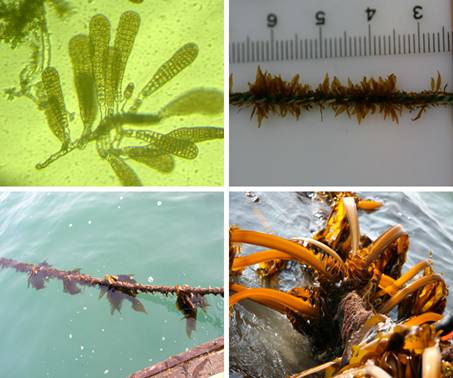Recently, researchers of the Marine Biological Culture Collection Centre (MBCCC, URL: www.mbccc.ac.cn) based at the Institute of Oceanology, Chinese Academy of Sciences (IOCAS) have made great progress in breeding new varieties of the economic brown alga Undaria pinnatifida.
The research group led by Dr. S.J. Pang has performed multiple intraspecific hybridization experiments using different combinations of gametophyte clones that were derived from wild and farmed populations along the coast of the Northwest Pacific. The first filial sporophytic offspring with desired commercial characteristics were selected and obtained after a 6-month open sea cultivation carried out at Dalian, the principal Undaria farming ground in China.
The researchers have demonstrated, for the first time, that the sporophytic offspring originated from mono-crossing of gametophytic clones possessed highly identical genotype (Shan and Pang, 2009, Phycol.Res., 57: 36-44). This breakthrough will help to solve the long-existing problem of cultivar degeneration and will potentially help to maintain the sustainability of Undaria farming in China
U. pinnatifida is a commercially important alga in China. As an edible species, the products are mainly exported to Japan. Traditionally, the seedlings were produced through zoospores, which could result in degeneration and mixing of the varieties. As a result, varieties must be introduced from time to time to maintain the commercial characteristics.
The technique of hybridization of gametophyte clones was developed based on the characteristic that the haploid stage of seaweed species in Laminariales has the ability to live independently and can be propagated in large quantity. By crossing different gametophyte cell lines that have large genetic distance, heterosis could be obtained and maintained for long-term application.

|
|

Address: 7 Nanhai Road, Qingdao, Shandong 266071, China
Tel: 86-532-82898902 Fax: 86-532-82898612 E-mail: iocas@qdio.ac.cn


